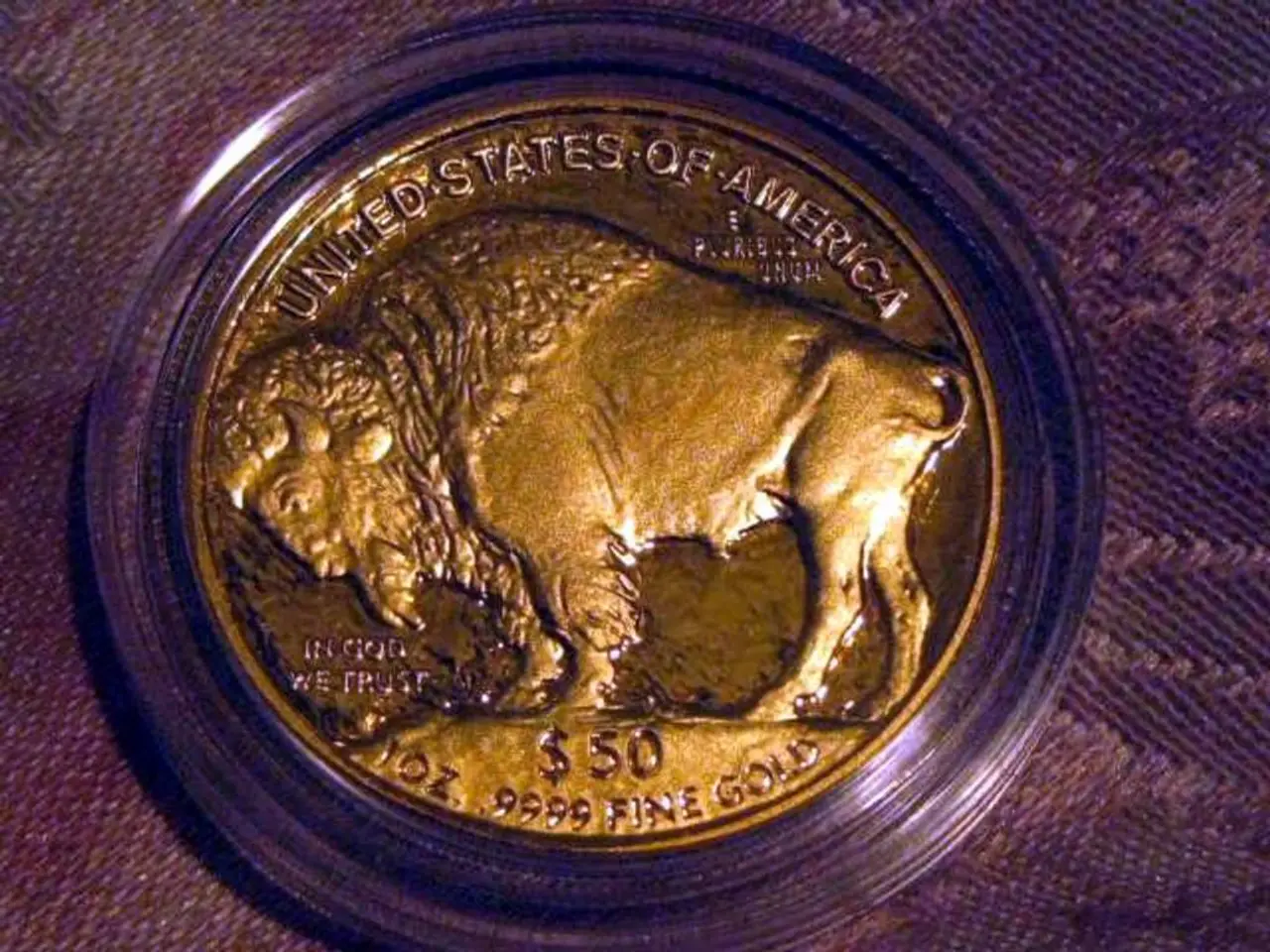Crypto enthusiasts can look forward to a promising future, according to Atkins' assertions.
In a bold move to transform the U.S. into a global leader in crypto finance, the new Chair of the U.S. Securities and Exchange Commission (SEC), Paul Atkins, has proposed a comprehensive plan for modernizing crypto regulation. Known as "Project Crypto," the initiative aims to create clear and updated rules for the issuance, custody, and trading of crypto assets, enabling on-chain financial markets.
Atkins' plan focuses on three key areas: issuance, custody, and trading of crypto assets. To clarify token classification, the plan calls for defining clear guidelines for when crypto assets qualify as securities, stablecoins, digital commodities, or collectibles. This will promote purpose-fit disclosures, exemptions, and safe harbors for crypto distributions such as initial coin offerings, airdrops, and network rewards, without stifling innovation.
In the area of custody, Atkins proposes revising existing SEC custody rules, which were designed without crypto in mind, to facilitate custody of crypto assets. The SEC staff is tasked with considering amendments and exemptions to better accommodate crypto custody practices.
For trading, Atkins envisions creating regulatory pathways for trading tokenized securities on decentralized finance (DeFi) protocols like automated market makers. Atkins also supports allowing broker-dealers to offer trading in both security and non-security crypto assets alongside traditional securities through a unified licensing framework, removing barriers such as the need for multiple state licenses.
Atkins also advocates for "super-apps," multifunctional platforms offering a broad range of crypto and traditional financial services under a single license. The SEC plans to update antiquated rules to leverage on-chain software systems, permitting truly decentralized systems and operator-run platforms without unnecessary intermediaries.
To protect investors, Atkins stresses the need for mechanisms to combat fraud and scams. He also supports reforms to clarify the standards of qualified custodians, allowing in certain cases the self-management of assets by advisors and investors.
Atkins' administration will seek a balance that allows the U.S. to take advantage of the opportunities offered by tokenization and blockchain technology, without sacrificing market integrity or public confidence. The commitment could transform the United States into a global reference in the adoption and regulation of crypto-assets.
Atkins aims to position the United States as the world capital of cryptocurrencies, following President Trump's vision, by creating a proactive and adaptive regulatory environment. According to Atkins, regulations designed for traditional off-chain assets often prove incompatible or unnecessary for on-chain assets, which can hinder blockchain technology growth.
Clarity in rules, according to Atkins, will help investors better identify legitimate offers and avoid unnecessary risks, fostering confidence in the overall crypto market. Atkins aims to avoid regulatory improvisation, replacing ad-hoc enforcement actions with clear and consistent norms that provide legal certainty for both investors and companies.
Atkins plans to develop clear and flexible guidelines for crypto assets, exploring new exemptions and mechanisms that facilitate their registration. He compared the migration of traditional assets to tokenized assets with the revolution that the shift from analog to digital audio brought to the music industry.
Atkins criticized the lack of adaptation of traditional forms and requirements for tokenized assets in emission, with only four issuers having registered crypto-asset offerings to date. He supports the expansion of options for intermediaries to offer negotiations of both securities and non-securities assets, including "pair" operations between cryptocurrencies and traditional securities.
Atkins' plan for modernizing crypto regulation in the U.S. represents a radical change from previous policies that focused excessively on the strict and punitive application towards the crypto market. The new approach promises a clearer, more rational framework that sets precise rules for the issuance, custody, and trading of crypto assets, while maintaining investor safeguards.
[1] SEC Press Release, "SEC Chair Gary Gensler Announces New Efforts to Address Crypto Asset Issuance, Trading, and Intermediation," 20 April 2022, https://www.sec.gov/news/press-release/2022-68
[2] SEC Press Release, "SEC Adopts New Rules for Broker-Dealer Custody of Digital Assets," 10 March 2021, https://www.sec.gov/news/press-release/2021-41
[3] SEC Press Release, "SEC Proposes Amendments to Modernize the Broker-Dealer Exemptions," 24 November 2021, https://www.sec.gov/news/press-release/2021-223
[4] White House Fact Sheet, "President Biden's Executive Order on Ensuring the Responsible Development of Digital Assets," 9 March 2022, https://www.whitehouse.gov/briefing-room/statements-releases/2022/03/09/fact-sheet-president-bidens-executive-order-on-ensuring-the-responsible-development-of-digital-assets/
[5] CNBC, "SEC's Atkins outlines plan for crypto regulation, including 'super-apps' and DeFi," 26 April 2022, https://www.cnbc.com/2022/04/26/sec-atkins-outlines-plan-for-crypto-regulation-including-super-apps-and-defi.html
- Atkins believes that clarity in rules for crypto assets, including digital commodities and stablecoins, will foster confidence in the overall market by enabling purpose-fit disclosures and safe harbors for activities like initial coin offerings.
- In his vision, technology plays a pivotal role in the future of finance, as Atkins proposes allowing broker-dealers to offer trading in both security and non-security crypto assets alongside traditional securities through a unified licensing framework, enabling trading of tokenized securities on decentralized finance protocols like automated market makers.




